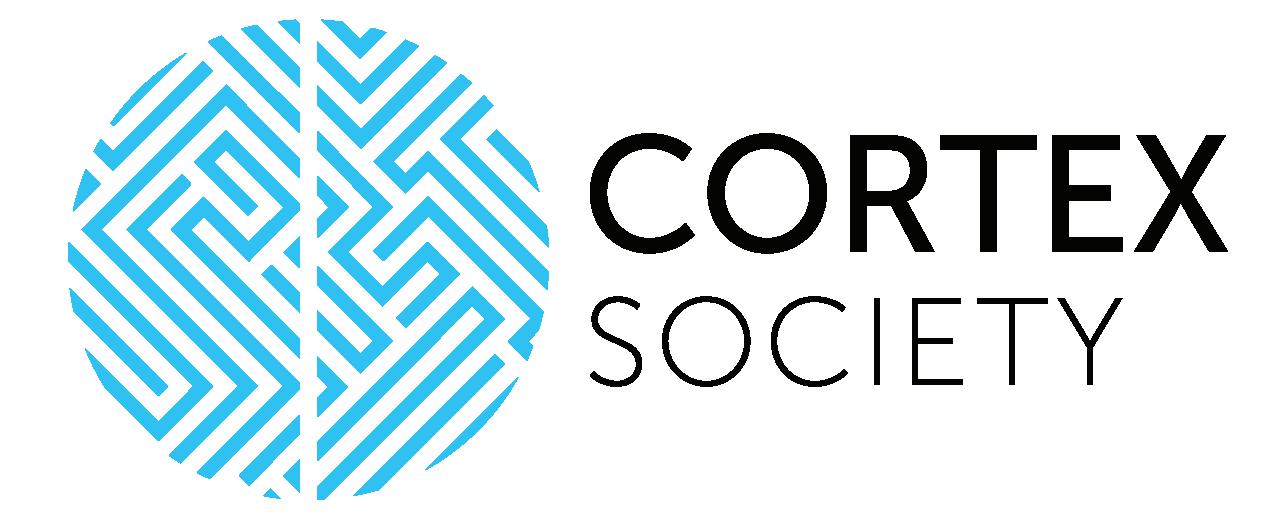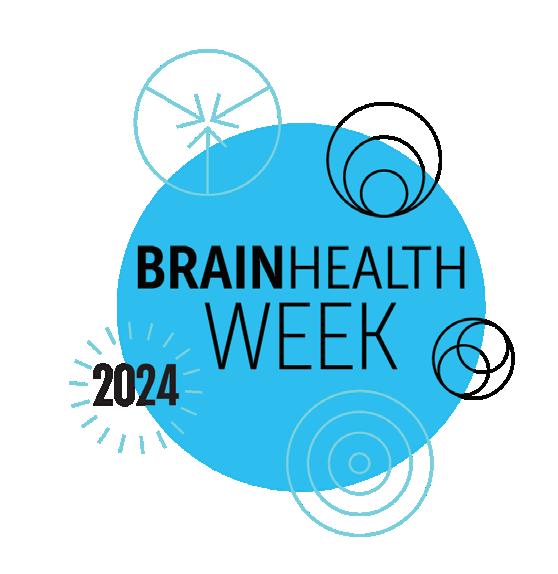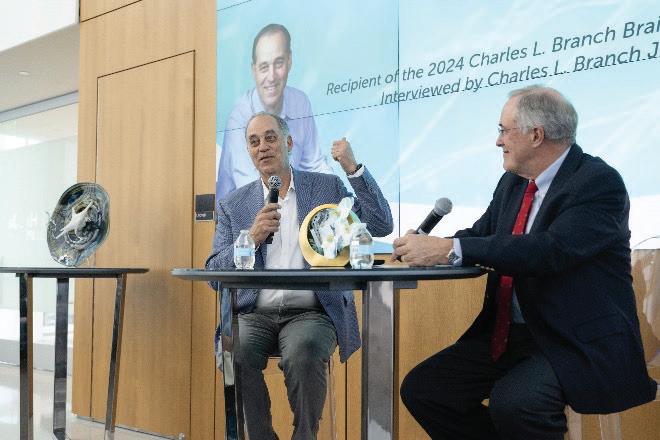DONOR IMPACT UPDATE



The Limitless BrainHealth Campaign is moving ever closer to its ambitious $50 million goal. As of April 30, the running tally of all gifts and pledges received stands at $48.1 million. “We’re so close I can feel it,” said Chief Director Sandi Chapman, PhD. “We are so grateful to everyone who has supported Limitless. The response has been remarkable!”
That remarkable response is evident in the campaign’s pace, as there is more than a year before the campaign formally concludes at the end of 2025. All gifts received since the start of the campaign’s quiet phase in 2017 collectively count toward the goal. When Limitless was announced publicly in April 2022, the total
stood at $30 million. “Limitless has been, and continues to be, a transformational experience,” said Dr. Chapman. “It is fitting to see this e ort culminate in our 25th year and propel us boldly into the future.”
The campaign’s success is being driven equally by long-time supporters and new donors. More than 1,500 first-time donors have given to Center for BrainHealth during the Limitless campaign. And this mix is also seen in the campaign’s volunteer leadership.
Nancy Wilbur and Craig Kennington are two of the 14 members of the Limitless Leadership group. “I’m a relative newcomer,” said Kennington, “but
I’m a big believer in everything Center for BrainHealth is doing both for North Texas and the global scientific community.” Kennington also serves as one of the 2024 chairs of Friends of BrainHealth, the annual campaign that supports early-career clinicians and scientists.
Nancy has supported BrainHealth since the center’s earliest days. “It is remarkable to see what the Center for BrainHealth has accomplished over the past 25 years,” she said. “This campaign has set the stage for the next 25 years and will propel the brain health movement around the world.”
To learn more about ways you can support BrainHealth's nonprofit mission, contact: | | Julie Heckmann, Co-Leader, Philanthropy 972-883-3277 julie.heckmann@utdallas.edu



The Trinity Family Foundation has pledged a generous $4 million gift to Center for BrainHealth to advance the science of brain health, in memory of Al G. Hill, Jr., renowned Dallas entrepreneur and philanthropist.
The thoughtful investment will support burgeoning research at Center for BrainHealth, focused on deepening our understanding of neuroplasticity – the brain’s lifelong ability to change, adapt, get stronger and work better.
In recognition and gratitude, the center’s premier gathering hall is now named the Al G. Hill, Jr. Ellipse. This one-of-a-kind space features a magnificent chandelier, called “Introspection,” created by David Gappa. The custom piece of art with handblown glass depicts active neural synapses. The versatile venue welcomes leaders and scientists from around the globe and provides a unique space for major gatherings.
Al was a true citizen scientist. Over the years, he challenged us to continue uncovering and validating ways to measure brain improvement. We are humbled by this generosity, and our team of experts will continue making the seemingly impossible a reality – developing the first-ever measurements tracking improvement in the brain’s function, along with accessible protocols to continually build brain-healthy habits.
Sandra Bond Chapman, PhD Chief Director, Center for BrainHealth
Center for BrainHealth is laser-focused on the science of brain health and performance. Their distinguished researchers are taking giant strides to spark a brain health revolution among all people, worldwide. We believe there could be no more fitting way to celebrate our father’s legacy.
"We have deep appreciation and gratitude for this monumental gift from The Trinity Family Foundation. Their support empowers the center to continue its pioneering science and expands its ability to reach all sectors of the population and empower people to thrive through better brain health," said Debbie

Sharon Jepkosgei, a graduate student from Kenya, is on the journey of a lifetime. She came to UT Dallas to pursue a master’s degree in data analytics and is the first to be named the Heather Kreager Brainomics™ Venture Research Assistant supporting Dr. Andrew Nevin.

Her position is the result of a gift from Kreager, who recently retired as CEO of Sammons Enterprises, Inc. Brainomics seeks to measure the economic impact and quantitative gains achieved through greater attention to brain health. For Kreager, the gift is a natural fit. “Employee wellness and brain-healthy practices were always a priority at Sammons, but we didn’t always know how e ective it was,” she said. “Brainomics quantifies it, so a company can see how it impacts the bottom line and enhances its corporate culture.”
Jepkosgei recently met Kreager to share her appreciation. “I was going to have to find a full-time job this summer to stay on track to graduate,” she said. “I am grateful for this experience and opportunity to practice what I’m learning in data analytics."


Attendees at the BrainHealth 25th Anniversary Gala in April were the first to learn of this new donor recognition society honoring lifetime giving. Representing the critical regions of the cerebral cortex, donors in these four recognition levels collectively empower the center’s development, growth and achievements.
More than 120 individuals, foundations and corporations comprise the founding members of the Cortex Society. Recognition is based on cumulative lifetime giving since the center’s founding in 1999. This includes the value of outright gifts and planned gifts, such as a bequest commitment, gift annuity or trust.
Members
$100,000 to $249,999 56 Members
Big gifts, and the donors behind them, often make the headlines. But every organization recognizes it is just as important to have a large number of donors at all levels who give consistently from year to year, as well as new supporters. As Center for BrainHealth celebrates 25 years, we thank those investors like Barbara Horn and Maria and Mark Vehslage for representing these vital donor populations.

Barbara Horn has been supporting the center almost from the beginning, making her first gift in 2000 and later including a provision in her estate plans. She also joined the Advisory Board in 2013.
After her husband’s 2008 passing, a fund was established in his memory to be used for the center’s greatest needs each year, including teen sports head injury research and Strategic Memory Advanced Reasoning TacticsTM brain training for warriors. Last year, income from the Buck Horn Opportunity Fund covered the fees for 72 sergeants from the Dallas Police Department to attend a BrainHealth course for first responders, “Cognitive Stress Solutions and Optimizing Performance Through Mental Flexibility.”
Barbara appreciates knowing this fund will exist in perpetuity, honoring her husband and the center’s mission. “Look at everything BrainHealth has done over 25 years,” she said. “As new challenges and opportunities arise, it is wonderful knowing Buck’s fund is there to help.”
began supporting BrainHealth in 2023, giving to the Friends of BrainHealth donor circle to support early-career research funding for center clinicians and sta . Maria joined the Advisory Board, co-chaired the 2023 Legacy Award Dinner, and served on the host committee for the Art of BrainHealth event during this year’s BrainHealth Week.
Through their landscape design company, MMV Services, they also donated their time and materials to install the beautiful landscaping around the Al G. Hill, Jr. Ellipse sign before the dedication ceremony last fall. “I’m so glad we were introduced to the center by our friend and BrainHealth board member Andy Walsh,” said Maria. “We may be coming in at the end of the first 25 years, but we plan to be part of the next.”
 Mark and Maria Vehslage represent the next generation of BrainHealth supporters.
Mark and Maria Vehslage represent the next generation of BrainHealth supporters.

The second annual BrainHealth Week was a huge hit, ensuring this celebration will become a longstanding tradition. Nearly 50 community partners promoted the events to their members, including the Dallas Museum of Art, YMCA, Perot Museum of Nature and Science, KERA, and Girl Scouts of North Texas. Sponsors included Bank of Texas, KERA, HKS, NBC5/Telemundo, and Frost Bank.
An invitation-only event, Brain3 Summit, assembled changemakers from around the world for two days of action-driven discussions. The annual Charles L. Branch BrainHealth Award was presented to Dr. Mark D’Esposito, a distinguished professor of neuroscience and psychology at the University of California, Berkeley.
This year’s “Family Fair” drew big crowds to engage in more than 20 brain-healthy games, arts and crafts, and other kid-friendly activities. Art students from Dallas College and UT Dallas participated in the annual “Art of BrainHeatlh” exhibition, sharing how
neuroscience concepts inspire creativity. The crowd also enjoyed a guest appearance by renowned glass artist David Gappa, who designed the stunning neuron-inspired lighting installation in the Al G. Hill, Jr. Ellipse.
BrainHealth Week also marked the launch of the seven-day Great Brain Gain text challenge, which encourages individuals to take a simple step toward better brain health by learning and applying a daily brain-healthy tip. The challenge continues throughout the year – get started by texting GAIN to 888-844-8991.
See photos and video highlights from 2024, and check back for 2025 dates, at centerforbrainhealth.org/brainhealth-week.






 Arianna Hu ngton joins Dr. Sandi Chapman for a virtual talk about Thrive Global, her technology company that improves well-being and productivity through science-based behavior change software.
Family Fair guests attend a workshop with the Dallas Black Dance Theatre.
Director of Programs and Head of Clinical Services Jennifer Zientz (left) moderates “Brain Health in the Wild,” one of the many panel discussions at the Brain3 Summit.
Arianna Hu ngton joins Dr. Sandi Chapman for a virtual talk about Thrive Global, her technology company that improves well-being and productivity through science-based behavior change software.
Family Fair guests attend a workshop with the Dallas Black Dance Theatre.
Director of Programs and Head of Clinical Services Jennifer Zientz (left) moderates “Brain Health in the Wild,” one of the many panel discussions at the Brain3 Summit.
Throughout BrainHealth’s first 25 years, volunteers have opened their homes for gatherings to learn more about the center’s programs. The most recent took place on May 7 at the home of Admiral Patrick Walsh and Mrs. Andy Walsh in support of CharismaTM, the virtual social coaching program that helps strengthen social skills.

Launched in 2007, Charisma has proven e ective for children and adults with social anxiety, Autism spectrum and attention deficit hyperactivity disorders, and learning di erences. The results are encouraging, with 90 percent of participants reporting gains in recognizing and managing emotions and 75 percent nearly doubling their ability to understand the intentions of others.
As a mother to children routinely uprooted during Admiral Walsh’s military service, Andy Walsh sees the value in the Charisma program. “Making new social connections can be very hard for kids,” she said. “This is a wonderful program to help reduce anxiety and improve social engagement skills.”
Maria Johnson, MA, CCC-SLP, and Aaron Tate shared details on how Charisma works. Other speakers –including Janie Mines, the first African American woman to graduate from the U.S. Naval Academy – addressed how Charisma provides support to many populations, including military families.
Learn more about this program at centerforbrainhealth.org/charisma.